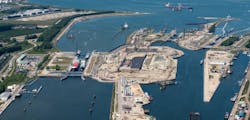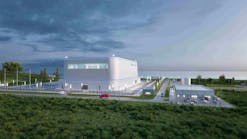Carbonvert and Castex Carbon Solutions Execute Operating Agreement for Offshore CO2 Storage Hub in Louisiana
Carbonvert and Castex Carbon Solutions, a wholly owned subsidiary of Castex Energy, have executed an operating agreement with the State of Louisiana to develop a 24,000-acre tract of land in State waters, offshore Cameron Parish, to permanently store carbon dioxide and help regional emitters with efficient and sustainable decarbonization solutions.
The Cameron Parish CO2 hub will be governed by Castex’s operational, commercial, and subsurface experience and Carbonvert's expertise in carbon capture and storage. Castex will serve as the operator for the hub.
According to Castex’s technical and subsurface studies and the region's advantageous subsurface geology, the hub not only has a total storage capacity of more than 250 million metric tons of CO2 but will also service the region’s high concentration of existing industrial emitters and anticipated greenfield projects, notably ammonia and LNG facilities.
"Our CCS project will strengthen the local economy via funds from the newly adopted Louisiana Act No. 378, via the Federal Justice40 requirements, and by attracting new low-carbon focused businesses and related jobs,” said Carbonvert CEO Alex Tiller. “It will also provide a solution to clean up existing regional CO2 emissions, which is a win for everyone.”
The JV partners are also looking for opportunities to repurpose existing pipeline infrastructure to support the project. They also aim to bring both economic and environmental benefits to Cameron and Calcasieu Parishes and the broader surrounding region.
“Our Cameron Parish project combines premier geologic storage attributes with existing midstream infrastructure to provide a range of tailored solutions to the adjacent industrial corridors in need of economically viable CO2 storage,” said Castex EVP & CFO Aaron Killian. “The significant environmental benefit and local economic impact of this project align with the mission and vision of the JV Partners and the industries we are collaborating with to address regional CO2 emissions.”





